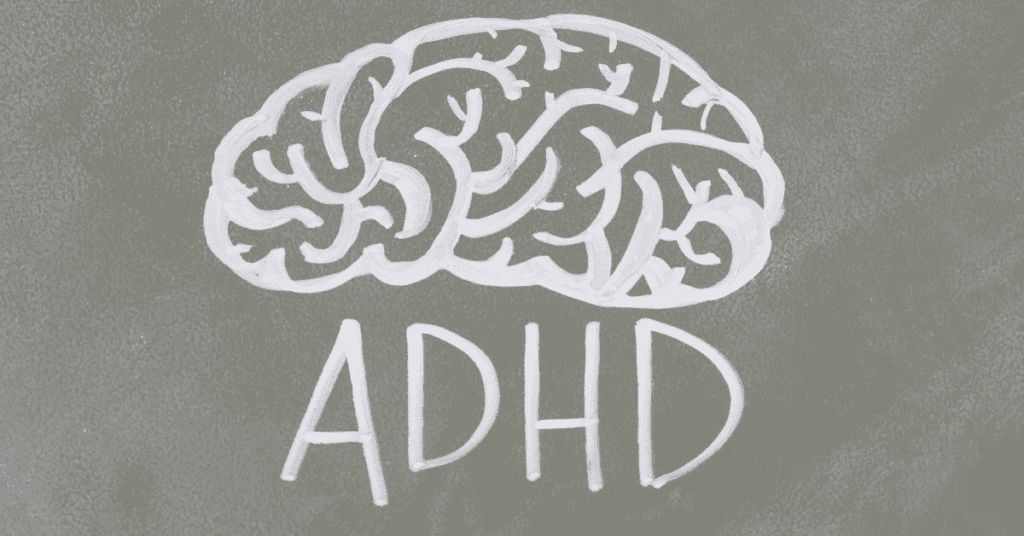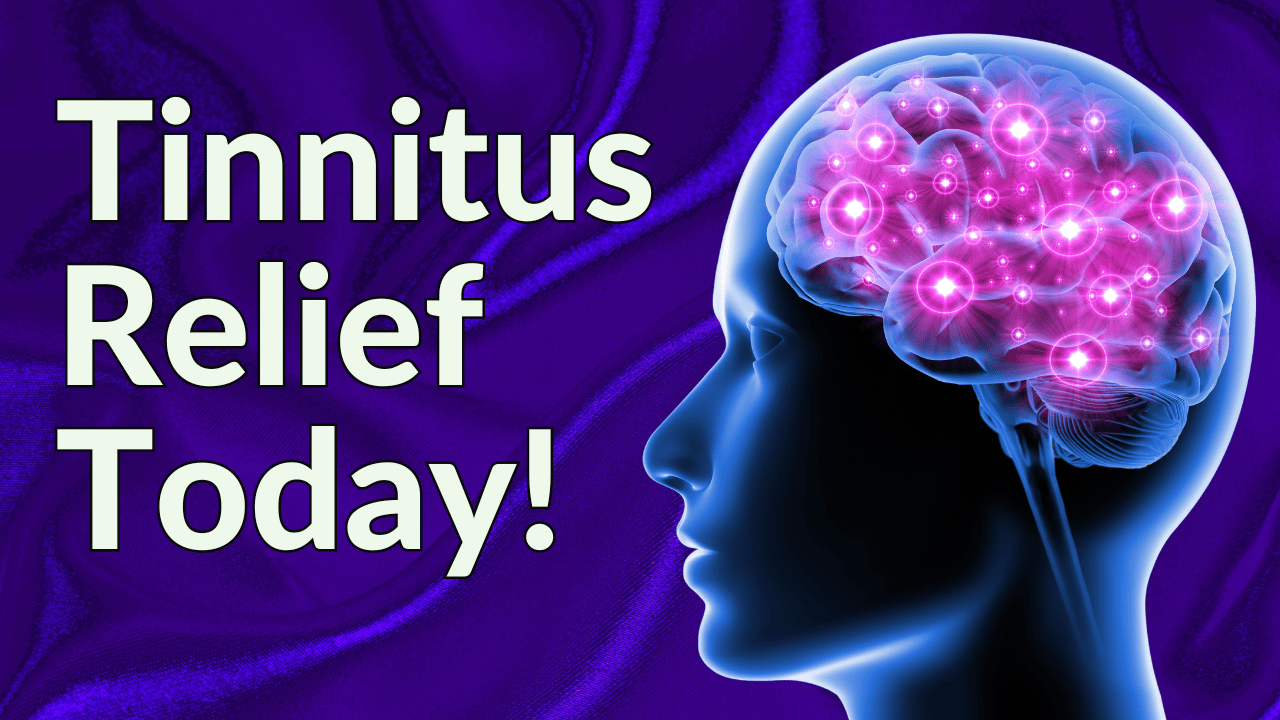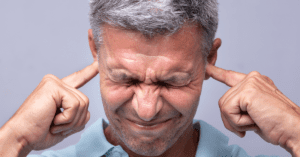The connection between tinnitus and mental health is well-known, and many people with severe tinnitus have a strong psychological response to the constant ringing in their ears.
But could neurodevelopmental disorders like ADHD be related to tinnitus? They have a surprising amount of symptoms in common, and new research suggests that there may be a link between these two seemingly unrelated health conditions.
Tinnitus is the perception of sound when there is no external source and is often described as a ringing in the ears, but everyone’s experience is unique. Some people hear humming, clicking, buzzing, or throbbing sound, and it may be temporary or long-lasting. Stress is known to cause or be caused by tinnitus, and some people with bothersome tinnitus share many symptoms with those who have ADHD.
What Is ADHD?
ADHD stands for attention deficit hyperactivity disorder. This neurological disorder impacts the parts of the brain that control planning, attention, focus, impulse control, and executing tasks. ADHD is most often identified in children, but because it’s a neurological difference, many symptoms persist well into adulthood or last a lifetime. The most common symptoms of ADHD are:
- Inattention or distractibility
- Difficulty focusing
- Trouble with time management
- Lower impulse control
- Mood swings
- Emotional dysregulation or exaggerated feelings
- Increased sensitivity to sound and other senses
- Hyperfocus
- Executive dysfunction
- Hyperactivity or fidgeting
"Treble Health helped me reduce my tinnitus by about 80%, and now I can live my life again!"


"Treble Health helped me reduce my tinnitus by about 80%, and now I can live my life again!"
– Steve D.
Book a free consultation to learn which Treble Health solution is right for you. Join Steve and thousands more who have found lasting tinnitus relief.
There are three subtypes of ADHD:
- Inattentive. This type of ADHD is characterized by distractibility and forgetfulness as well as trouble focusing, following instructions, and finishing tasks.
- Hyperactive. This more visible type of ADHD is identified by lower impulse control, fidgeting, moving around a lot, and talking too much or speaking at inappropriate times.
- Combined type. The most common form of ADHD is a mixture of all the above symptoms.
What Do ADHD And Tinnitus Have In Common?



The underlying causes of ADHD and tinnitus are very different – ADHD is related to the way a person is “wired” while tinnitus is generally caused by external factors, conditions, or hearing loss. Yet there is a noticeable overlap between these two distracting and often distressing conditions.
Distractions Make It Hard To Focus Or Pay Attention
For people with ADHD, concentrating or staying on task can be very difficult. Noise, certain sounds, loud music, or visual distractions can make focusing even more difficult.
With tinnitus, exposure to loud noises can worsen these same symptoms. The constant ringing in the ears can increase, which can make it hard to pay attention to anything else. Too much sensory input can easily become overwhelming.
Symptoms Worsen At Different Times Of The Day
The time of day, stress levels, and tiredness can worsen symptoms of both conditions. Some people with ADHD feel more fatigued or distractible in early morning and later afternoon. This can also be related to the fluctuations in medication as the day goes on. Similarly, people with tinnitus tend to notice the ringing in their ears at night when the environment is quieter and has fewer distractions.
Insomnia And Sleep Problems
Many people with ADHD experience racing thoughts when trying to rest, while people with tinnitus are irritated by a constant ringing in the ears. Neither condition makes it easy to get a good night’s sleep. Winding down for the night and staying on a healthy sleep schedule can be challenging. Incidentally, poor sleep worsens both conditions the next day.
Low Motivation



Managing these conditions can be exhausting and frustrating, which makes it a challenge to have the mental energy to complete tasks. This can interfere with your ability to work, go to school, or socialize. It can be a challenge to maintain healthy relationships and keep up with daily routines.
Difficulty Managing Symptoms With Medications
Neither tinnitus nor ADHD have a cure, and treating them with medications can be hit or miss. Many people explore a wide range of treatment options before finding one that works.
Stress, Anxiety, And Depression
Both ADHD and tinnitus can interfere with daily life and impact mental wellness. The forgetfulness, distractibility, disorganization, and mood swings of ADHD can lead to other mental health problems. Tinnitus is frustrating, distracting, and its mechanism is closely linked to the stress response. Many people with severe tinnitus feel anxious or depressed.
Hyperacusis And Sensitivity To Sound
Not everyone with ADHD experiences sensory processing issues, but hypersensitivity to sound or hyperacusis is common. ADHD makes it difficult for the brain to filter out irrelevant sensory information, including sound.
Tinnitus is related to the brain’s response to sound, and for some people, sensitivity is increased. Certain sounds become bothersome or even physically painful. People with tinnitus also find that certain sounds become bothersome. This leads to increased sound sensitivity that can direct more attention to tinnitus instead of more relevant tasks and information.
With both conditions, too many stimuli can trigger sensory processing issues that affect the way your brain interprets information. With both ADHD and tinnitus, you may be more sensitive to touch, sound, or other senses than most people.
Auditory Processing Disorder
Some people with either condition experience an auditory processing disorder in which it’s harder to understand speech, distinguish between sounds, and filter out background noise. The ringing or buzzing in your ears can cause these difficulties, and people with ADHD have trouble filtering out irrelevant sounds and focusing on more important information.
Is Tinnitus Related To ADHD?
Even though tinnitus and attention deficit hyperactivity disorder seem unrelated, studies suggest there may be a link between the two.
Recent research indicates that there could be a link between anxiety, inattentive-type ADHD, and the perception of tinnitus. This study compared the anxiety and depression symptoms of people with both ADHD and tinnitus to people without these conditions with a goal of investigating the relationship between tinnitus and psychiatric disorder syndromes. Findings suggest that anxiety and inattentive-type ADHD could contribute to the pathophysiology of tinnitus.
Another study revealed a significant association between ADHD and tinnitus among young women. About one third of people in the study reported experiencing tinnitus while only 12% of participants without ADHD noticed tinnitus. The study also found that when compared to people with either ADHD or tinnitus, people with both conditions reported much higher levels of anxiety, depression, and other emotional distress. This research suggests managing mental health, especially with regards to anxiety and depression, can help treat both conditions.
The association between ADHD and tinnitus is a growing topic of interest, and the exact relationship between the two is still not fully understood.
How Do ADHD Medications Affect Tinnitus?
The study published in the medical journal Noise & Health found that participants with more pronounced ADHD symptoms had more severe tinnitus. Additionally, people with ADHD who were taking stimulant medications like Ritalin or Adderall reported less severe tinnitus than people who were not taking medications to treat ADHD.
At the same time, some stimulant ADHD medications may have side effects that can impact auditory processing and perception. These sensory processing issues may increase sound sensitivity or make tinnitus more noticeable. Some medications are ototoxic – that is, they are known to be damaging to your hearing. Speak with your healthcare provider if you are concerned that your medications may be causing or worsening tinnitus.
Treating ADHD And Tinnitus With CBT



One of the most effective management techniques for both ADHD and tinnitus is cognitive behavioral therapy (CBT). This type of counseling focuses on changing negative thought patterns and behaviors to help improve your mental health. It’s commonly used to treat anxiety and depression, which may accompany either ADHD or tinnitus.
In the case of ADHD, CBT can help you focus and manage symptoms to improve daily function and quality of life. For tinnitus, CBT can help manage the emotional distress of the constant perception of sound. Relaxation techniques are a beneficial component of CBT and can support both conditions.
Supporting Mental Health Is Key
In order to manage tinnitus and ADHD, taking steps toward mental wellness is essential. The emotional distress and impact on your quality of life can worsen other mental health issues like depression, anxiety, and sleep problems. Positive self-care habits like eating well, staying active, practicing mindfulness, and taking medications as prescribed are key.
Managing Tinnitus With Treble Health
At Treble Health, our team has extensive experience in managing the complexities of tinnitus. If you’re experiencing challenges with tinnitus, our team is here to help with a complimentary telehealth consultation.
This session is designed to provide you with expert guidance and personalized strategies to help you reduce your tinnitus. In this 20-minute Zoom consultation, our audiologists will listen to your story, assess your specific needs, and offer recommendations tailored to your condition. We are committed to helping you improve your auditory health. To get started with a free consultation, click here.
Next Step: Book Free Consultation
- 75% of patients reduced their tinnitus within three months after following our recommendations.
- "I feel like Treble Health literally gave me my life back." - Randy S. (verified customer)
- Join thousands of people who have reduced their tinnitus after scheduling a free consultation.




















